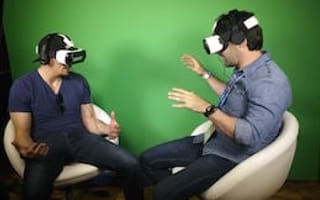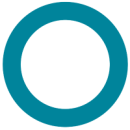Every successful founder had to start somewhere. There are lessons to be learned at every early job in your professional journey, whether that's scooping ice cream as a teenager or an unexpected postgraduate pivot. We spoke with some of New York’s own tech founders and CEOs about their first jobs, the lessons they learned and how these experiences shaped their career paths.

Abi Mandelbaum, co-Founder and CEO
 What was your first job?
What was your first job?
My first job was at EMC Corporation, where I managed large-scale IT projects. I served as a lead and liaison between the business and the development folks. I had to learn to speak both languages and get them to coordinate and understand each other.
What's a lesson you learned in that job that you've carried with you throughout your career?
I learned the importance of cultivating project management skills. Those skills are vital if you want to run a business, run projects and make progress on anything in business.
Do you think your experience at your first job impacted the trajectory that led you to where you are today?
Absolutely. The fact that I developed project management skills while handling IT projects allowed me to help my other co-founders build YouVisit into the company it is today. Just like back at EMC, we have business and development folks working together. It's essential to get them to collaborate effectively for us to move forward. My past experience made me better at encouraging that collaboration.
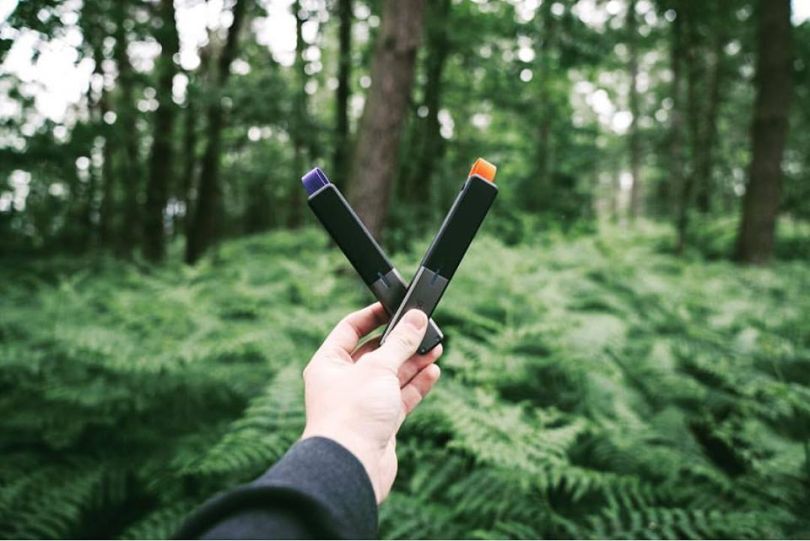
Daniela Perdomo, co-founder and CEO
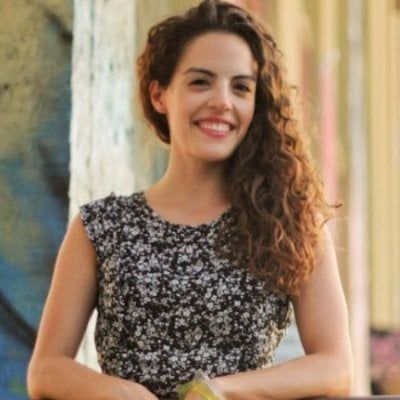 What was your first job?
What was your first job?
My first full-time job was as a staff writer at the Los Angeles Times.
What's a lesson you learned in that job that you've carried with you throughout your career?
Everyone and everything is interesting, you just have to dig in.
Do you think your experience at your first job impacted the trajectory that led you to where you are today?
There's a very clear trajectory from ‘escaping’ the L.A. Times to founding goTenna.
While I can still remember the rush of landing a front-page byline, the joy was immediately followed by the realization that I was in a contracting industry rather than a growing one. In college I had been absolutely certain I would be a journalist and that was it — I never considered anything else. But once I'd landed the dream job and realized the reality of newspapers was they were downsizing, didn't understand online and were struggling to reach diverse, new audiences, I finally looked elsewhere.
I ended up taking an entry-level job as a project manager at a tech startup in San Francisco in 2008, and, well, that was it. In that job, I quickly learned my communication skills as a writer and journalist were really useful in liaising between technical and business teams. In a sense, that's still what I do today as a CEO.

Rich Fulop, co-founder and CEO
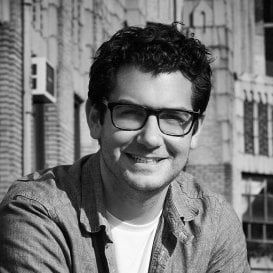 What was your first job?
What was your first job?
Waiting tables in high school.
What's a lesson you learned in that job that you've carried with you throughout your career?
It taught me the value of great customer service.
Do you think your experience at your first job impacted the trajectory that led you to where you are today?
Yes. I definitely learned a lot about business and customer service. I also learned about communication and attentiveness, and how that relates to spend and repeat business. Every customer (or patron, back then) is a potentially lifelong relationship for you and your business.
Vicki Fulop, co-founder and chief communications officer at Brooklinen
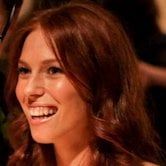 What was your first job?
What was your first job?
My career trajectory wasn't a straight path at all. My first job was as a paralegal when I was in college, and I went on to law school after. As I was studying law, I began to really feel that law wasn't the career path for me, and that I wanted to be doing something more creative. I began looking into other options, took on PR and business development internships at Tory Burch in my third year, learned all I could, and after graduating, landed at a beauty PR agency where I worked with companies like Lancôme and John Frieda, growing my expertise in visual branding and storytelling.
What's a lesson you learned in that job that you've carried with you throughout your career?
I think I've learned a lot of valuable things in every job, but at Tory Burch my boss told me that as long as I pursued my passion as fervently as I could (even if at times it felt risky and scary to me), I would be just fine, and even thrive. I think the gist of the lesson was that you are happier getting to pursue your passion, and also better in whatever field you are when you are working at it, because you love it and want to throw everything you have into it. You are more fulfilled and your work product is better when you are pursuing what you really love to do, so you should believe in yourself and have faith that it will work out because you will make it work. It was great advice and motivation, and has always stayed with me.
Do you think your experience at your first job impacted the trajectory that led you to where you are today?
Definitely! My first jobs in PR taught me the ins and outs of the media industry, but also about thinking creatively, problem solving, styling, visual and verbal storytelling, branding, event planning and budgeting — each job has taught me countless things that I apply every day at Brooklinen.

Alex Ontra, co-founder of Shufflrr

What was your first job?
A secretary at DDB Needham Worldwide. I had to answer phones and type other people’s memos. Neither the job nor the ad agency exists in the same form today.
What's a lesson you learned in that job that you've carried with you throughout your career?
Even though I graduated from University of Texas at Austin and had hands-on agency experience interning at GSD&M, when I came to New York, I was still forced to start at the very, very bottom. But to get the job, I had to type 90 words a minute. I didn’t know how to type so after my first interview on a Friday, I sat with my mother’s 1970s secretarial typing guide (the book was older than me) and taught myself over the weekend. Come Monday, I failed the typing test but they gave me the job anyway because they liked my enthusiasm and practical experience. I learned that even if something that seems trivial and demeaning, it may be the tool that brings you into the future. At the time, typing was a skill for a subordinate job. Now, you can’t survive in business or school for that matter without knowing your way around a keyboard. I also learned that you can learn anything if you are willing and you set your mind to it and that willingness will take you wherever you want to go.
Do you think your experience at your first job impacted the trajectory that led you to where you are today?
Absolutely. I realized I could spend my hard work and time waiting for someone else to promote me. Or, I could start my own company and let my customers promote (or demote me). I chose the latter. The risk is greater, but so are the rewards.

Kym Frank, President
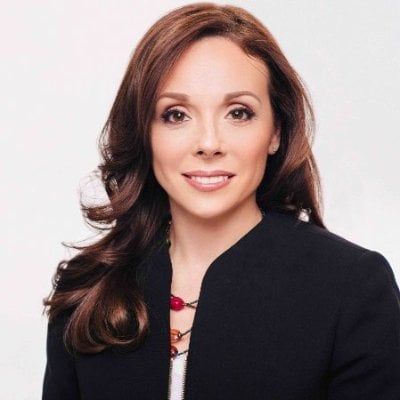 What was your first job?
What was your first job?
My first job was scooping ice cream after school at the local Dairy Queen in Sparta, NJ.
What's a lesson you learned in that job that you've carried with you throughout your career?
Being an ice cream scooper taught me that everyone is happy all the time and life is as sweet as rainbow sherbert! People go out for ice cream when they won the baseball game or got an A on a test or when they are on a first date. No one goes out for ice cream when they are in a bad mood, angry or depressed. Angry people eat ice cream at home, out of the carton, with a spoon.
It was actually my second job that taught me a number of lessons that I still carry with me today. I had to pay my way through college, so I waited a lot of tables in Philadelphia, PA while attending the University of Pennsylvania. Waiting tables in a restaurant was, by far, the hardest job that I have ever had in my entire life. More often than not, people are generally happy when they go out to eat. However, while waiting, you always have those certain people that can be quite hangry. Some might be having a rough day, be dealing with some rambunctious children or in a rush to get somewhere. It’s these people that can make waiting tables quite the arduous task. However, it’s also these people that taught me the invaluable lessons that I still carry with me today.
While waiting tables I learned the importance of not only meeting, but exceeding customers’ needs. As a waiter, you’re often multitasking, handling an assortment of requests, whether it be water refills or special food requests or someone simply asking you where the bathroom might be. I learned that even if you do your best, things might (probably will) go wrong. And that’s perfectly fine. At the end of the day, you just need to realize people are just people. If you are hard-working, genuine, friendly and maintain a smile, most of the time they will acquiesce and warm up to you.
Do you think your experience at your first job impacted the trajectory that led you to where you are today?
Waiting tables taught me an assortment of lessons. It helped me learn to multitask, helped me understand how to cultivate instant and meaningful relationships with clients, taught me to keep a smile on my face even in the toughest of times, and taught me the importance of rolling up your sleeves and getting the job done, regardless of what obstacles you might be facing.
These are all vital to the success of Geopath today, which is comprised of 200 different member companies, each of which features an assortment of employees that we work alongside on a daily basis.
With a team of about a dozen people here at Geopath, it’s especially important for us to ensure each of our members needs are not only met, but exceeded. We take immense pride in cultivating meaningful, impactful relationships with each of our members. We are always genuine and make sure we work as hard as possible for them to ensure each request is met and each task is handled.
Images via Facebook, LinkedIn and featured companies.
Know of a company that deserves coverage? Let us know or tweet us @builtinnewyork.
